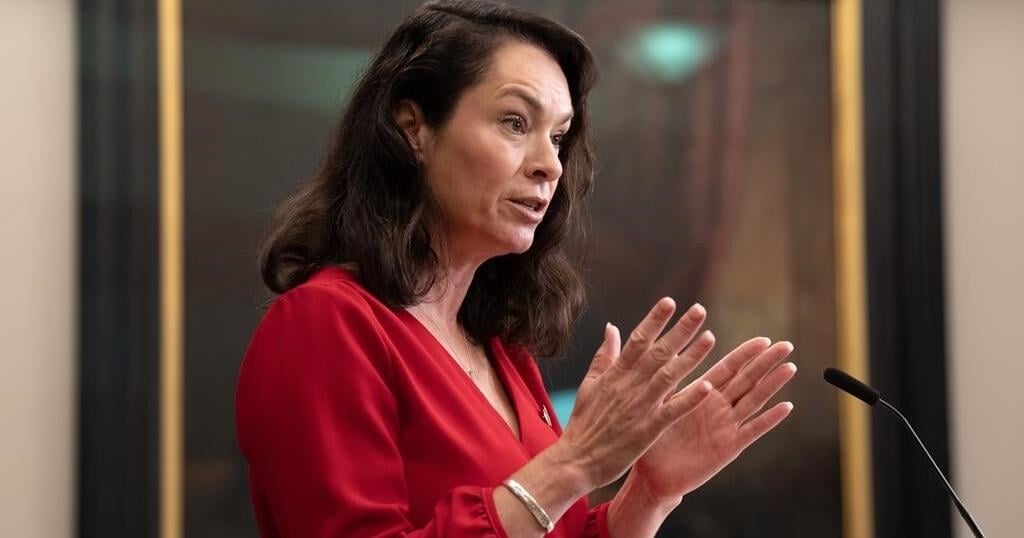OTTAWA – The NDP is urging the Liberals to recognize Palestinian statehood, warning that a Conservative government would not protect international law in the Middle East.
“If we go to an election within weeks or months, and if there is a Conservative government, this will not happen,” NDP foreign affairs critic Heather McPherson said Monday.
She accused the Liberals of lacking “moral courage and political will” to advance the Trudeau government’s stated goal of advancing a two-state solution, where Israel and a Palestinian country exist peacefully.
McPherson says Canada ought to recognize Palestinian statehood before any snap election. Conservative Leader Pierre Poilievre has been leading in the polls for months, and McPherson argued the party has been uncritically supportive of Israel.
“We have heard from Pierre Poilievre and the Conservatives that they have no interest in international law, they have no interest in protecting the rights of Palestinians,” she said.
Tory foreign affairs critic Michael Chong wrote in a statement that Israel is defending itself against terrorism by Hamas and Hezbollah.
“Conservatives recognize that Israel is a democratic state defending itself in a fight between democracy and rising authoritarianism,” he wrote. “There is no question which side Canada should be on.”
The NDP is also seeking a two-way arms embargo, where Canada would go beyond barring new arms permits and actually block all military trade, including goods arriving from Israel.
The Liberals have restricted weapons sales by halting new permits and pausing some that were already in place. But the U.S. government has proposed buying Canadian arms and sending them to Israel, which Foreign Affairs Minister Mélanie Joly has said she is looking into.
The NDP also wants Canada to go beyond sanctioning certain settlers in the West Bank and impose a ban on at least far-right ministers in the government of Israeli Prime Minister Benjamin Netanyahu. McPherson said two had uttered “genocidal language against the Palestinian people.”
Ottawa condemned Israeli Finance Minister Bezalel Smotrich last month for suggesting it would be justified to starve Palestinians, and he previously said the Palestinian village of Huwara should be erased.
National Security Minister Itamar Ben-Gvir, who is part of a Jewish supremacist party, has called on Palestinians to leave the Gaza Strip and have Israelis settle the territory, which has prompted accusations of ethnic cleansing.
The Liberals and Conservatives did not have an immediate response to McPherson’s criticisms.
McPherson noted the government could act on her three proposals without a vote in Parliament or a parliamentary study.
Israeli strikes on Monday killed more than 270 people in Lebanon and wounded a thousand people, as part of a campaign the Israeli government says is meant to stop Hezbollah militants from ongoing rocket attacks that have caused the evacuation of large swaths of northern Israel.
Canada recognized Hezbollah as a terrorist group, and McPherson said the rocket attacks need to stop.
She also says international law is being violated, including in pager explosions that killed Hezbollah militants as well as civilians and children. The attacks are widely believed to have been done by Israel.
McPherson would not say whether she believes the “indiscriminate” pager attack is an act of terrorism when asked twice on Monday.
“We know that Hezbollah is a listed terrorist entity, but the (Israeli) government is breaking international law when they are using indiscriminate weapons and the people of Lebanon are suffering,” she said.
This report by The Canadian Press was first published Sept. 23, 2024.
